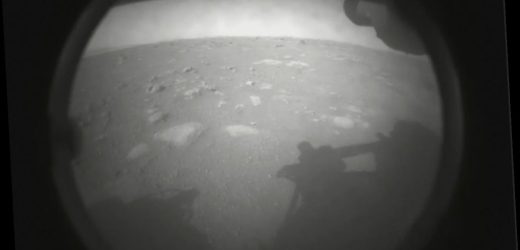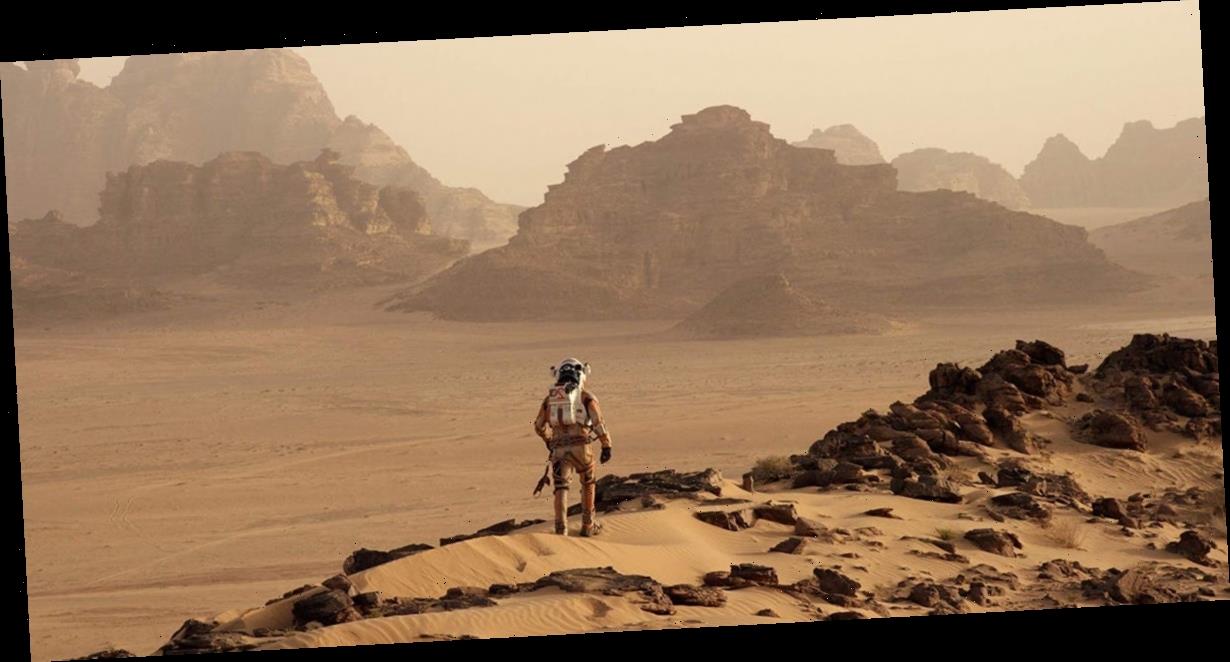NASA's Perseverance rover has only been on Mars for less than a day, but it's already making history following its highly anticipated landing.
Shortly upon touching down on the Red Planet on Thursday afternoon, the Perseverance snapped two black-and-white photos of Mars' surface, the first ever captured from the Jezero Crater.
"Hello, world. My first look at my forever home. #CountdownToMars," the rover said in the first of two tweets. "And another look behind me. Welcome to Jezero Crater."
The images showed the dusty, rocky surface of Mars, and featured the unmanned rover's shadow looming in the forefront.
The Perseverance's main job on Mars is to look for signs of ancient life and collect samples of rock and regolith (broken rock and soil) for possible return to Earth, according to NASA.
The rover — which is about the size of a car — completed a 203-day, 293 million-mile journey after launching from Cape Canaveral Air Force Station in Florida inside the United Launch Alliance Atlas V 541 rocket in July.
Its landing at 3:55 p.m. ET marked an end to what NASA called its "seven minutes of terror," as many things could possibly have gone wrong as the rover descended to the surface using an intricate sky crane system.
The milestone — which was made possible by a decade of work by hundreds of experts — was expected to be the first time video captured a spacecraft landing on Mars, thanks to cameras and mics on the rover. The long-awaited landing was celebrated with cheers, claps and sighs of relief from NASA scientists, whose joyous reactions were livestreamed and shared on Twitter.
"This landing is one of those pivotal moments for NASA, the United States, and space exploration globally — when we know we are on the cusp of discovery and sharpening our pencils, so to speak, to rewrite the textbooks," acting NASA Administrator Steve Jurczyk said in a statement. "The Mars 2020 Perseverance mission embodies our nation's spirit of persevering even in the most challenging of situations, inspiring, and advancing science and exploration. The mission itself personifies the human ideal of persevering toward the future and will help us prepare for human exploration of the Red Planet."
The rover will explore the Jezero Crater, which scientists believe had its own river delta and was filled with water 3.5 billion years ago, according to NASA.
Those who want to follow along on Perseverance's mission (which will last about 687 days) can do so with NASA's interactive map here.
Source: Read Full Article




